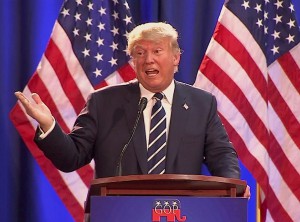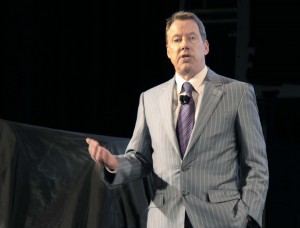Even as Ford Motor Co. has been forced to repeatedly defend its plans to move small car production from the U.S. to Mexico, a Who’s Who list of other automakers is set to expand operations of their own South of the Border.
An all-new Audi plant went into production at the end of September, while Nissan is set to begin producing Infiniti models at a plant it will eventually share with Daimler AG’s Mercedes-Benz brand. General Motors, meanwhile, is investing $800 million in its own small car operations in Mexico, including a retooled plant in San Luis Potosi.
While the Audi and Infiniti/Mercedes operations show that Mexico is now attracting high-end manufacturers, much of the focus remains on small car production where low labor costs are critical to profitability.
All three Detroit automakers have long had a presence in Mexico, but Ford has been most vocal in recent months about plans to expand there. In April, it announced a $1.6 billion investment, following that up with word that it would move production of the Focus and C-Max models from Michigan to that new plant. The maker later said it would pull all small car lines out of the U.S.
(Ford, Trump aim for truce. Click Here for the story.)
That generated a series of attacks by Republican candidate and later GOP presidential nominee Donald Trump. During the first of this year’s presidential debates he declared that, “Our jobs are fleeing the country. They are going to Mexico.” He followed by directly targeting Ford and claiming it was taking “thousands of jobs. Leaving Michigan, leaving Ohio. They are all leaving.”

Republican nominee Donald Trump suggested Ford Motor Co. would eliminate all of its U.S. manufacturing jobs today.
Ford has fought back, even issuing tweets of its own to counter the claims during the debate. Subsequently, the automaker’s Chairman Bill Ford met with the GOP candidate to discuss what he described as the “infuriating” attacks. Trump has toned down, but not completely abandoned the criticism of Ford since that meeting.
That has forced other automakers, especially those from Detroit, to be more cautious about openly discussing their plans, noted the Bloomberg news service.
“Big American companies are being cautious, they don’t want to have issues with the presidential candidates,” Mario Chacon, head of global business promotion at Mexico’s foreign investment agency, told Bloomberg. “They’re feeling repressed because anything they say can be used against them.”
(Click Here for more about Ford trouncing Trump.)
As big as Ford’s investment is in the new Mexican plant, GM has made even larger bets on what is now the world’s fifth-largest automaking nation. The $400 million going into the San Luis Potosi plant is on top of a $5 billion investment GM announced for Mexico in December 2014. Among other models, the latest-generation Chevrolet Cruze is coming from that side of the border.
Industry analysts say automakers like Ford and GM – as well as Nissan, Kia and others – have no choice but to shift small car operations to Mexico, or even further off-shore. With competition high but demand low, American labor costs have made it virtually impossible, they insist, to build products like the Chevy Cruze or Ford Focus in the U.S. and turn a profit.
On the plus side, GM and Ford note they are filling empty space in existing U.S. plants with more profitable product lines. The Ford plant in Wayne, Michigan, for example, will soon take on some new truck lines, including the reborn Ford Ranger and Bronco models. If anything, CEO Mark Fields has stressed that the maker intends to add at least 8,000 jobs as part of its current agreement with the United Auto Workers Union.
GM says it will also add, rather than cut, U.S. jobs in the coming years.
(Trump, Ford Motor Co. tussle over Mexico. For more, Click Here.)
Even so, the current presidential debate has highlighted growing concerns among Americans, especially blue-collar and middle-class workers, about the impact of trade agreements like NAFTA. And that could impact future product plans whomever winds up in the White House next January.

